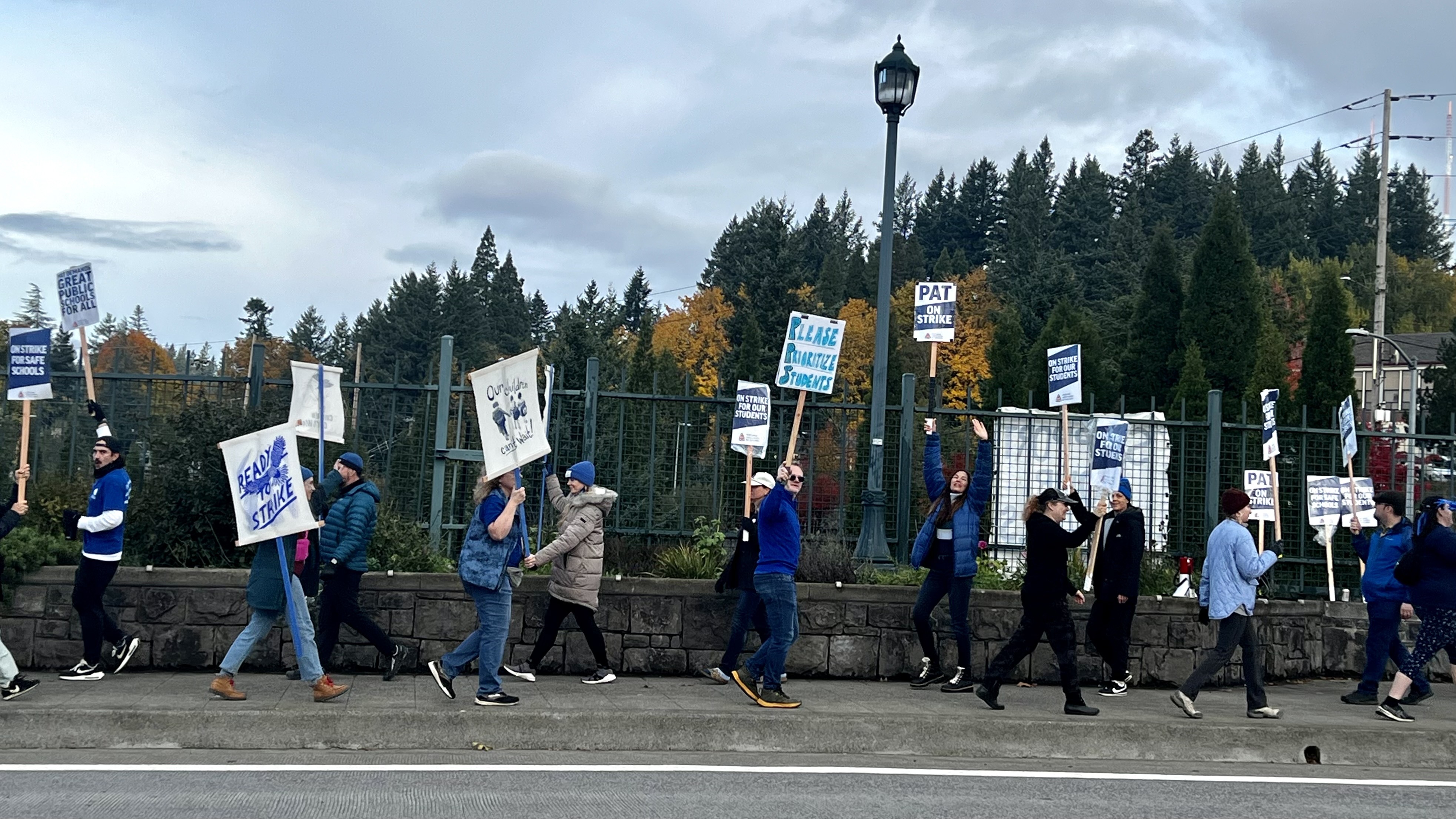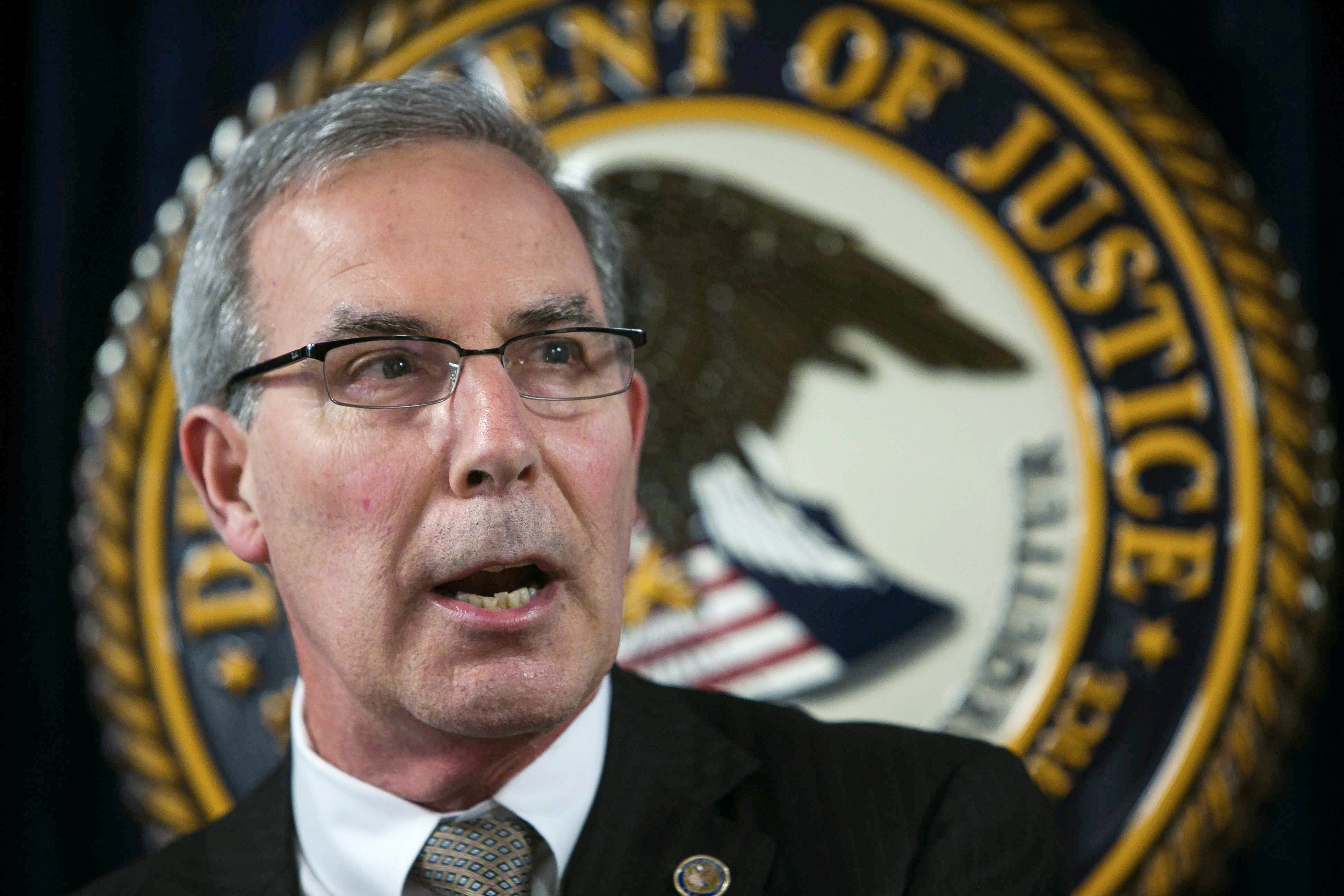As Portland teachers strike cancels its third day of classes, district, union, and legislators weigh in

After a weekend of negotiations, the first-ever Portland Public Schools strike is now in its second week. There are few signs of progress.
Teachers in Oregon’s biggest school district, Portland Public Schools, are now entering their second week of strike. Negotiations between Portland Public Schools and Portland Association of Teachers to negotiate a new contract continue.
The strike began on Wednesday, November 1. Since then, local, state, and national players in education have joined the discussion, writing letters to members of the school board and speaking at rallies in schools throughout the city. The fundamental differences remain between the two sides.
Guadalupe Guerrero, the Superintendent of Portland Public Schools, spoke at a Monday morning press conference about some of the voices that have been calling for the end of the strike. This includes a group composed of 16 Portland lawmakers who wrote to PPS last week to ask them to reduce “superfluous administrative spending”.
|
In the past week, many people have asked our district to cut its budget. Guerrero stated that this has been the reality of our bargaining since January.
“Our current proposal requires PPS to cut $51 million over the next three year. This will mean that the one-time reserve must be used to bring us down below our minimum. We have already begun to consider how these reductions could look, starting with the central administration looking at where they need to make cuts.”
The strike was continuing into the new week, so the district and the union met with an official mediator for another session of negotiations. This is after three days of consecutive sessions on Friday, Saturday, and Sunday.
Financial disagreements remain
The union has also called for the district to address health and safety concerns, such as mold and rodents in district school buildings. The union also asked the district to address safety and health concerns in district schools, such as mold and rodents. Both sides appear to be using different financial figures. This has led to a muddied discussion and calls for increases and cuts in certain places.
Renard Adams, PPS chief of Research, Assessment, and Accountability, said that each side’s budget experts have met in the past to exchange notes, but this has not been done recently.
Adams stated that there was no agreement on the figures. “We have repeatedly asked them to show what areas they propose we cut to make the investment they are asking for. We haven’t gotten any concrete answers yet: “The money is there” is all we hear. This is not enough to help us identify areas where we can make cuts or redirection to meet their requests.
Adams stated that the two parties met over the weekend in small groups to discuss topics such as planning time for teachers, and class size. He said that the disagreements continued on Sunday.
In a letter sent to the school board, lawmakers claimed that PPS spends less on classrooms and more money on administration. Guerrero defended district spending by saying that instructional support coaches, and others who work in schools daily are included in the administrative ranks.
Guerrero stated that “maybe we spent more money centrally to support schools, but we also showed a different narrative to the way students were doing in the rest of the state – where a lot more work is needed.” PPS made more progress than the state in reading and math tests earlier this fall.
Guerrero stated that he would “invite dialogue” about how school systems spend money to support their students, particularly students of color.
Salem legislators press district for funding priorities
While Guerrero prepared to speak on Monday, a group representing legislators and union leaders held a press conference in Salem.
Jacque Dixon, Vice President of PAT, said: “Teachers are eager to teach. But our students don’t get what they need at this time.” “Our classrooms lack resources and, despite our teachers’ best efforts, students require more support than they have ever received.
Michael Dembrow (D-Portland), chair of the Senate Education Committee and former union president at Portland Community College, was a teacher there. He said that the strike was mainly due to a “sense distrust between the parties” and the feeling among teachers that they were not respected.
Sen. Elizabeth Steiner (D-Portland), one of the leading budget writers in the state, called it “frustrating”, that the school district was trying to blame legislators for the lack of funding.
“When Superintendent Guerrero told the Legislature we should fund PPS at $10,3 billion, and we did, I find it a bit disingenuous that they now say we can’t because you didn’t give us enough funding.”
Steiner believes that teachers should be fairly compensated and has noted other teacher demands such as “simple safety and health things like the temperature in the class so kids can learn while being safe and healthy.”
Steiner stated that it was not the job of the Legislature to micromanage schools districts. It is our responsibility to provide the funding we think is best for our budget, given other constraints we had. Now it is the district’s responsibility to give priority to the district’s most valuable resource, their teachers.
The head of the Oregon agency that recommends school funding levels, says the state has a history of falling short. The Quality Education Commission, which has been recommending funding levels to legislators for more than 20 year, says that the state’s pattern is always to fall short.
John Rexford, chair of the QEC, told OPB Think Out Loud on Monday that state spending is about $1.5 billion below what his commission recommended. Rexford stated that from budget cycle-to-budget cycle, the state’s spending falls 15 to 20 percent short of what his commission determined is necessary to provide a “quality” education.
Rexford stated that the majority of the money raised would be used to hire more staff. This includes both licensed and paraprofessional staff who support the classroom, as well as staff working in the classroom.
Rexford acknowledged that the challenge facing the Legislature was to fund public education along with other programs, with limited funding from state.
Calls for involvement from school board members
PAT and Oregon Gov. Tina Kotek and a group of Portland legislators invited school board members to attend sessions for negotiations. Andrew Scott, Julia Brim Edwards, and Patte Sullin attended sessions this past weekend.
PPS Chief Staff Jonathan Garcia has expressed his gratitude to the members of the Board in a blog post.









No Comments